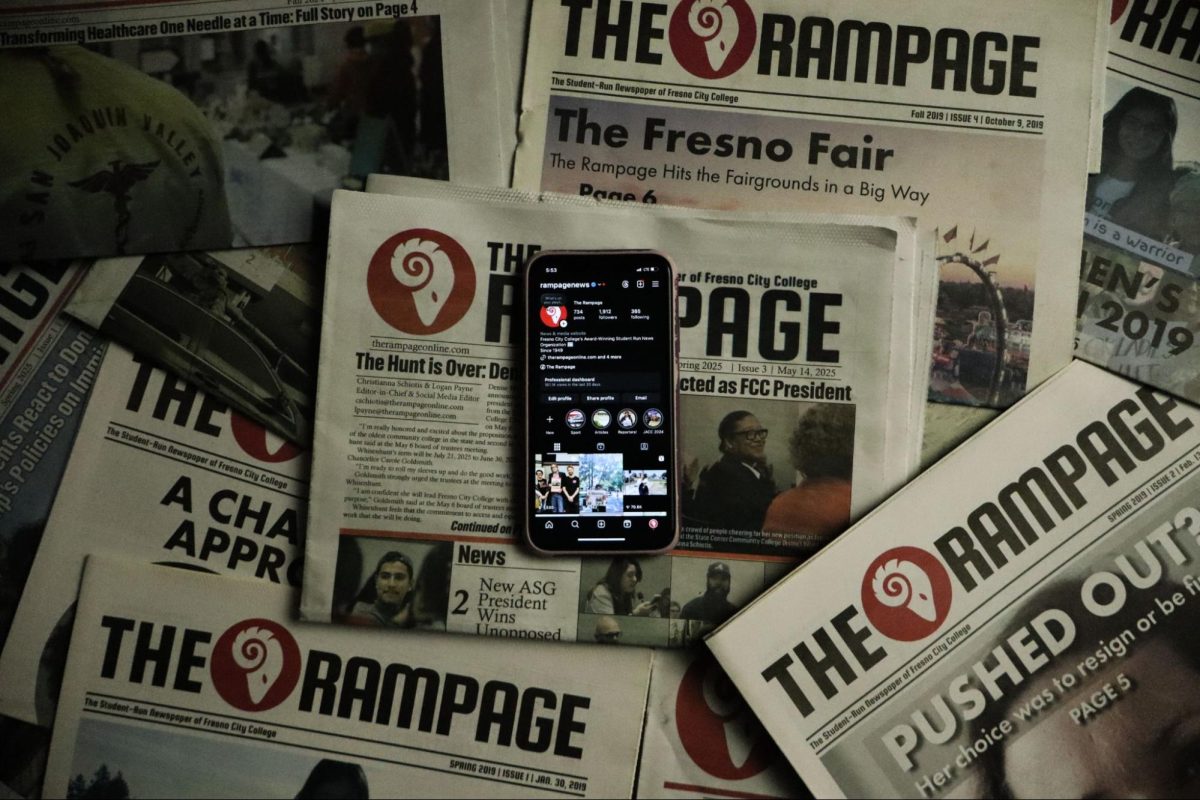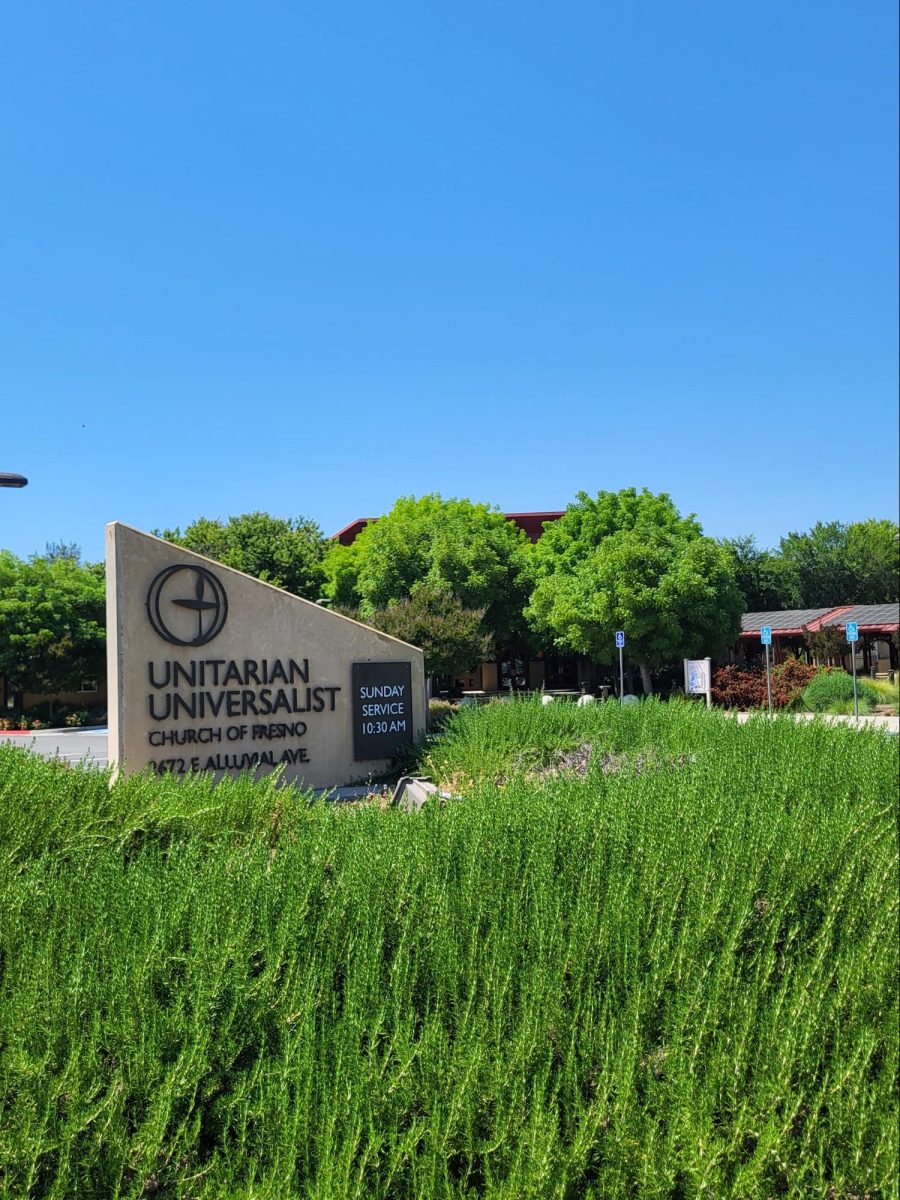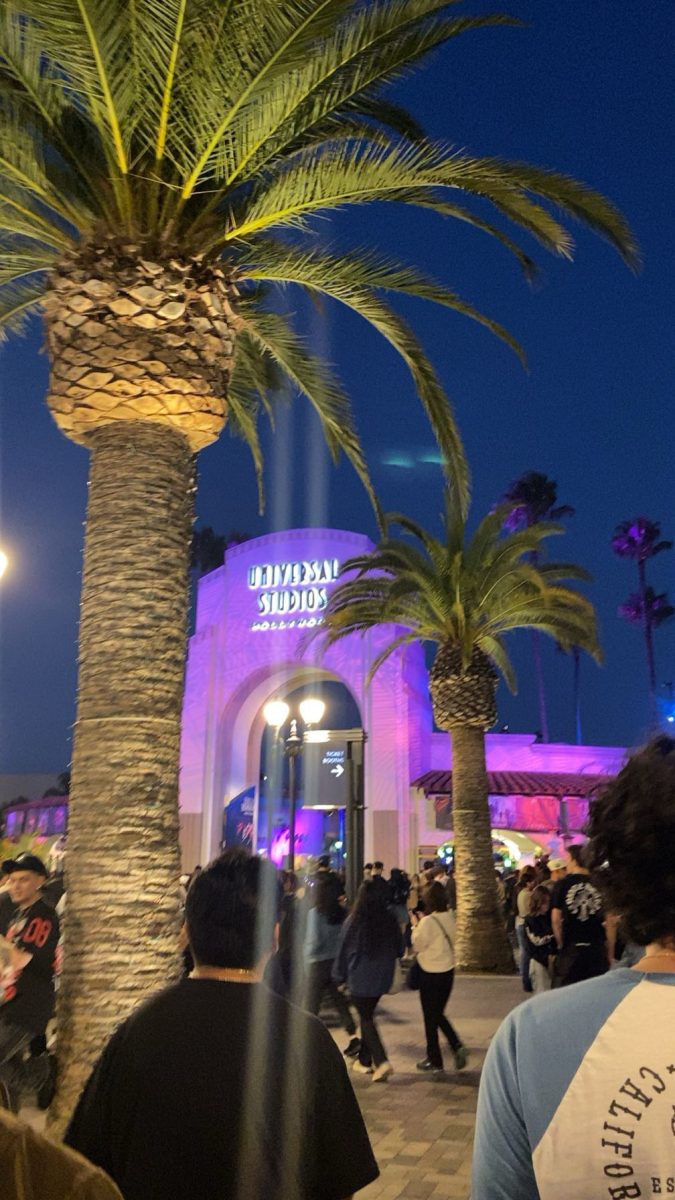Pro
by Tania Tran
Yes, Fresno City College should be a smoke-free campus.
The college requires those who smoke to do so at least 20 feet away from the buildings on campus, but how many times have you walked out of your classroom to find someone smoking next to the railing no more than five feet away?
Considering the harmful effects caused by smoking, FCC students would benefit more if it were a smoke-free campus. Those who do not smoke should not have to feel like they are at a bar or hookah lounge while trying to scarf down a meal or have a conversation with friends on campus. There is no refuge from second hand smoke.
By the fountain, by the cafeteria, in the free speech area, and even in the parking lots, there is nowhere for non-smokers to get away from the dangers of second hand smoke, yet smokers can go anywhere on campus and light up.
Non-smokers who breathe in secondhand smoke take in nicotine and other toxic chemicals just like smokers do. Secondhand smoke is classified as a “known human carcinogen” (cancer-causing agent) by the US Environmental Protection Agency (EPA). In its “Vital Signs” publication, the Centers for Disease Control recently reported that 443,000 people die from a tobacco-related cause every year.
Aside from the dangers of second hand smoke, the campus gets littered with cigarette butts and trash from cigarette packs. It makes our campus look sloppy and poses a danger to the environment. Cigarette butts are not biodegradable in the sense that most people think of the word. The acetate (plastic) filters can take many years to decompose.
What happens after that butt gets casually flicked on campus? The butt is carried into the water supply, where the toxic chemicals the cigarette filter was designed to trap leak out into aquatic ecosystems, threatening the quality of the water and many aquatic life forms.
Cigarette butts may seem small, but with the amount of butts littered every year on campus added to the billions littered all over the world, the toxic chemicals add up. Smokers may not realize that their actions have such a lasting, negative impact on the environment.
If FCC becomes smoke-free, it would mitigate these kinds of problems. It is not so much an issue of imposing restrictions on students’ personal rights, it is about environmental and public health and safety. FCC enforces high standards in conduct and graduation requirements, so why leave promoting the development of healthy life habits out?
Should a smoker’s rights be more important that the rights of non-smoking students?
Let us lead the campus and its students in a healthy direction by making Fresno City College smoke-free.
Con
by Angel Lopez
No, Smokers should have a right to smoke on the Fresno City College campus.
Lots of things which are bad for us are legal — a greasy pizza slice from the Campus Café might give you heart problems later on in life and the smog from cars clogging the FCC campus are causing an equal if not more harm than any potential second hand smoke might be causing. Just as deadly as smoking is obesity; it is another major risk factor for heart disease and certain cancers in America. But, the argument is made that thier eating habits don’t affect others the way smoking does. Smoking is in the air around us.
But, moking is not the biggest threat to our air quality. This year, Fresno was ranked fourth in the nation for cities with bad air quality. That is a major health risk for everyone, and this bad air quality has contributed to 3.9 million Californians with asthma symptoms.
Therefore, secondhand smoking is not the only contributor to asthma and other health diseases. Air pollution from the San Joaquin Valley and unhealthy food options are major health risk factors as well. Is there a policy on banning and preventing these other factors? Should we have a policy on campus that dictates where and what students can eat, or how much time they can spend outside?
Logical solutions to the smoking problem exist, if we just stop and think about it. If more people leave the campus throughout the day, to take up smoking elsewhere, another risk can take shape: car accidents. Cigarettes kill over time; a fatal car accident can kill more innocent non-smokers in a second.
Instead of banning the act of smoking completely, designating an area for smokers would be the best solution to the problem. This alternative would accommodate both the smokers and non-smokers. If we can create at least one designated area, smoking will not have such an impact on a non-smoker. It would also be unfair to deny students and professors the right to smoke especially since they could be on campus for long periods of time. Our goal should be to try to accommodate, and be mindful, of all members of the FCC community instead of stigmatizing segments of it.
I attended Santa Barbara City College last year and the campus provided designated areas for smokers. I do not smoke, and I was not affected or bothered by it on campus. The area should be both secluded but open enough for the everyday smoker.
A college campus serves adults, and almost everyone attending FCC is of age. Until the law prohibits the use of cigarettes, no rules restricting individual’s civil rights should be enacted on campus. Unlike alcohol, smoking does not impair a user’s attention or impair slow responsive speed. There are health threats, but those threats could happen over time and are considered a risk by the consumer.
For many people, smoking is a habit that they have become accustomed to. We all have habits of our own that help us make it through the day which might not be the healthiest choice, but we still do it. In America we have the right to make our own decisions, to have our own bad habits, and no one should take smokers’ rights away.
If the school is going to have a zero tolerance for smoking on campus, it should also ban caffeine and other unhealthy habits. Are you willing to fight for your habit if it is the next to be banned?






